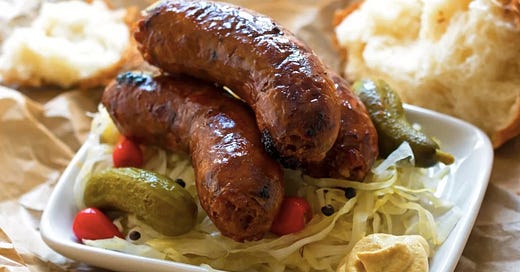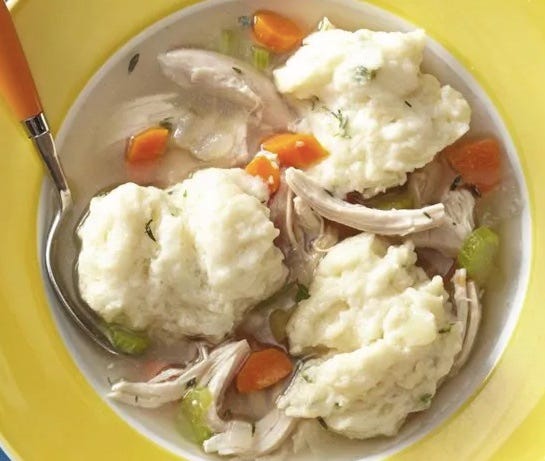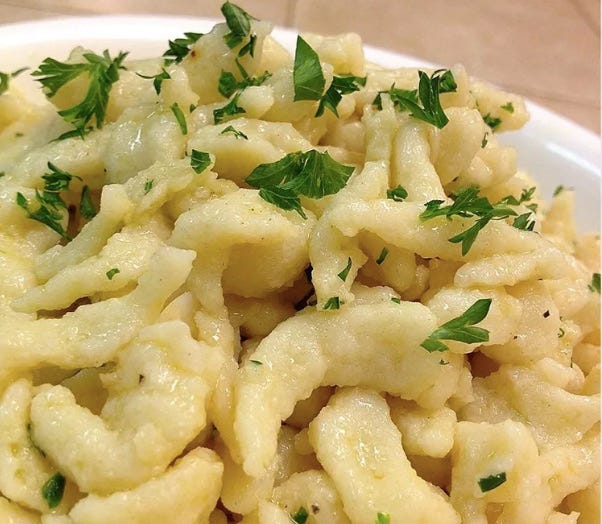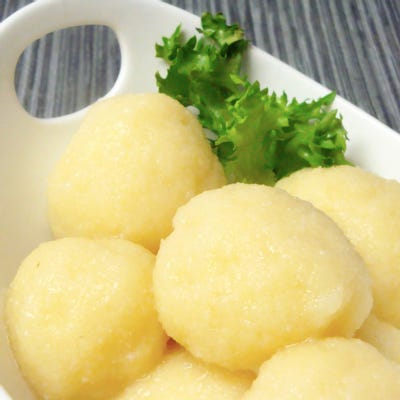The direct quotes in this story are from a taped interview of my mother, Katy, when she was 75 years old. The tape and transcript of her voice is a priceless treasure to her family.
“My dad and mom sat at the head of the table. The three older brothers sat at the sides, my two little brothers and I sat at the foot. We ate soup every night, maybe with a little pork or chicken in it, but on Sunday, mama roasted a couple of whole chickens. Us three little kids, we weren’t allowed to eat more than a certain share. We were given the chicken backs, the feet and the necks. It was mostly bones, but it was still good and we licked those bones clean, I’ll tell you. I don’t think I ever got a real piece of chicken until I was about fourteen.
Food was scarce for a lot of families in the 1930s. Meals of baked beans, potatoes fried in lard, biscuits and gravy were common. Those who lived on a farm, however, escaped some of the poverty of the Great Depression by growing a variety of foods from seed, canning and drying it for the winter months, and raising a few animals like chickens and geese and maybe a goat or cow.
“In the early 1930s, some people didn’t have a lot of food. We knew there was a depression on, and a lot of people had trouble feeding their families. We were lucky, though. For all our meals, we counted on vegetables from our garden. The butter, cheese and milk came from our cows and eggs from our chickens. The flour and noodles from our own wheat. We didn’t buy much food, except for things like sugar and vinegar and baking soda.”
“Mama and I cooked just plain old German food. Nothing fancy. We had a pot of soup cooking every day. We made Kartoffel Suppe with potatoes, onions, milk and butter. Sometimes we had Roterübe Suppe made with beets and sour cream. I remember boiling Steckrübe — that’s turnips, and Mohrrübe Suppe, which was mostly carrots. We ate a lot of bread and noodles. She used to make Eiernudeln, a noodle dough with lots of eggs in it. She rolled it out with a rolling pin then rolled up the dough and cut it in narrow strips. She dropped these egg noodles into the soup broth. When she was too tired, she would just pinch off little bits of dough and drop them into the soup. She called this “rivola”, but I think it was like what other people call spaetzle.”
“Mama made a kind of white cheese from cows milk. She would form it into a tight ball about as big as a grapefruit. She would tie it up in a cheese cloth and hang it from a knob on the stove and let it drip into a pan. I was never part of cheese making so that is all I can say about that. It was good stuff, though.”
“The fall was the time when Dad would sell the most of the hogs we raised, but we did keep a few to butcher and preserve. Mom and dad worked together to make sausages and liverwurst and hams. Dad would salt the pork and smoke the hams and sausages. They made head cheese too. I couldn’t eat that stuff, because they ground up all the weird parts like snouts and ears. It was disgusting to me, but the family all ate it. As a little girl I remember boiled hogs’ heads lined up on the kitchen counter and I wouldn’t go in there in the dark for a drink of water. My older brother had to go with me.”
When my mother, Katy, was a grown woman, with her own family to support, money was always scarce. We always lived in town, moving from house to house like gypsies, and couldn’t have a garden or raise chickens. Our food budget had to stretch a long, long way. She drew on what she had learned about economical meals during the 1930s, so the mainstays of our diet growing up were, bread, noodles, potatoes, dry beans, dumplings, oats, macaroni. We were addicted to carbohydrates very early on, and it is, of course very evident when you look at us today. Noodles are “home” to us, potatoes are comfort and, as some of you know, it is a hard addiction to break. Personally, I have never met a loaf of bread I didn’t like.
Note: Vielen Dank, Rebecca Holden, for help with my German title!










Nothing beats good bread and potatoes! ... That's interesting how her upbringing helped her later in life to learn how to make things stretch in times of need. Often people share stories of earlier hardships, however difficult, somehow helping them cope with something later in life.
Well those are not all in one day, silly. There's eggs 100 ways, veg also 100 ways, coffee of course. Meat sometimes, canned or real. Crocked it makes a big pot of soup. Now and then, a batch of cookies or a grip of chocolate chips when ya just gotta have some sugar. Peanut butter, cheese, apples, oranges. That's about it. Then work it off with shoveling snow, gardening, scrubbing apartments, painting same., shovel gravel, haul concrete and lumber. Sit still while petting cats or typing. Calories? what's that? Is anything NOT carbs? hahaha